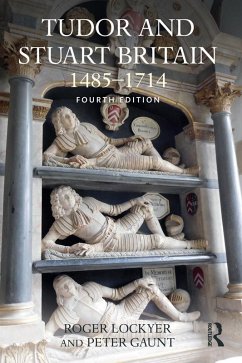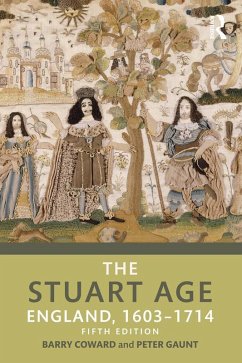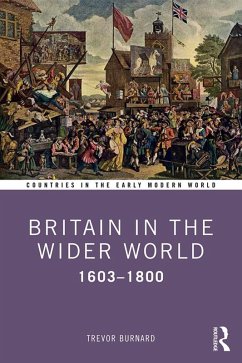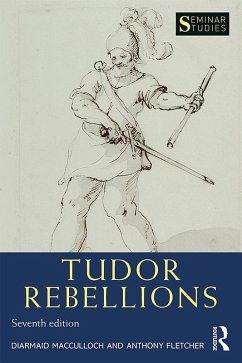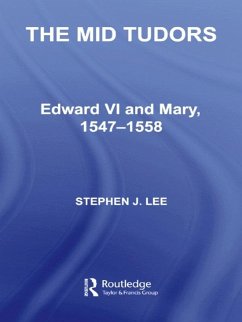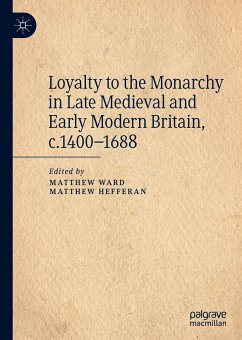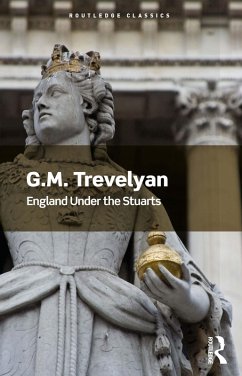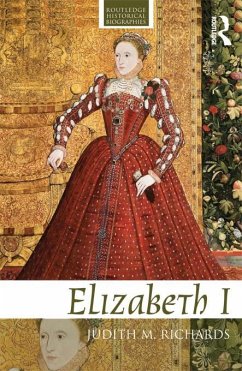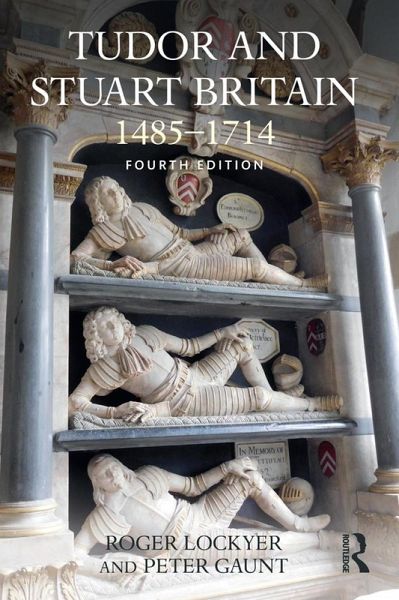
Tudor and Stuart Britain (eBook, PDF)
1485-1714
Versandkostenfrei!
Sofort per Download lieferbar
46,95 €
inkl. MwSt.
Weitere Ausgaben:

PAYBACK Punkte
23 °P sammeln!
Tudor and Stuart Britain charts the political, religious, economic and social history of Britain from the start of Henry VII's reign in 1485 to the death of Queen Anne in 1714, providing students and lecturers with a detailed chronological narrative of significant events, such as the Reformation, the nature of Tudor government, the English Civil War, the Interregnum and the restoration of the monarchy.This fourth edition has been fully updated and each chapter now begins with an introductory overview of the topic being discussed, in which important and current historical debates are highlighte...
Tudor and Stuart Britain charts the political, religious, economic and social history of Britain from the start of Henry VII's reign in 1485 to the death of Queen Anne in 1714, providing students and lecturers with a detailed chronological narrative of significant events, such as the Reformation, the nature of Tudor government, the English Civil War, the Interregnum and the restoration of the monarchy.
This fourth edition has been fully updated and each chapter now begins with an introductory overview of the topic being discussed, in which important and current historical debates are highlighted. Other new features of the book include a closer examination of the image and style of leadership that different monarchs projected during their reigns; greater coverage of Phillip II and Mary I as joint monarchs; new sections exploring witchcraft during the period and the urban sector in the Stuart age; and increased discussion of the English Civil War, of Oliver Cromwell and of Cromwellian rule during the 1650s.
Also containing an entirely rewritten guide to further reading and enhanced by a wide selection of maps and illustrations, Tudor and Stuart Britain is an excellent resource for both students and teachers of this period.
This fourth edition has been fully updated and each chapter now begins with an introductory overview of the topic being discussed, in which important and current historical debates are highlighted. Other new features of the book include a closer examination of the image and style of leadership that different monarchs projected during their reigns; greater coverage of Phillip II and Mary I as joint monarchs; new sections exploring witchcraft during the period and the urban sector in the Stuart age; and increased discussion of the English Civil War, of Oliver Cromwell and of Cromwellian rule during the 1650s.
Also containing an entirely rewritten guide to further reading and enhanced by a wide selection of maps and illustrations, Tudor and Stuart Britain is an excellent resource for both students and teachers of this period.
Dieser Download kann aus rechtlichen Gründen nur mit Rechnungsadresse in A, B, BG, CY, CZ, D, DK, EW, E, FIN, F, GR, HR, H, IRL, I, LT, L, LR, M, NL, PL, P, R, S, SLO, SK ausgeliefert werden.




